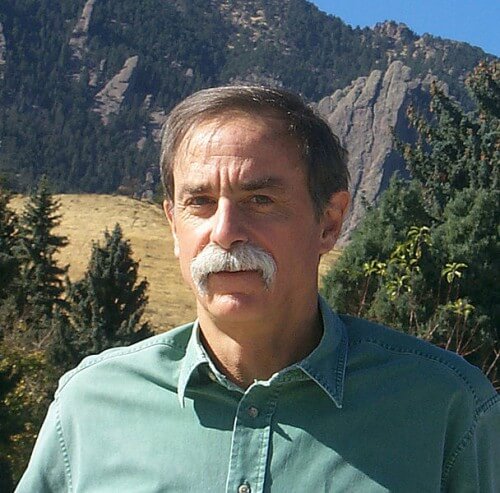Roche and Weinland separately developed methods for measuring and handling individual particles while preserving the nature of quantum mechanics, in ways previously thought impossible.

Translation of the announcement of the Swedish Academy of Sciences from today:
The Swedish Academy of Sciences has decided to award the 2012 Nobel Prize in Physics to Serge Hersch of the Collège de France and Ecole Normale Supérieure in Paris, and to David Weinland of the American Standards Institute and the University of Colorado for "the development of groundbreaking methods that will enable the measurement and manipulation of individual quantum systems."
Roche and Weinland separately developed methods for measuring and handling individual particles while preserving the nature of quantum mechanics, in ways previously thought impossible.
Nobel laureates have paved the way for a new era of experiments in quantum physics by demonstrating direct observations of individual quantum particles without destroying them.
For a single particle of light or matter the laws of classical physics cease to exist and quantum physics takes over. However, individual particles cannot be easily isolated from their environment, and they lose their quantum properties as soon as they make contact with the outside world. However, for many this appears to be a strange phenomenon, but it was predicted by quantum physics and is not directly observable, therefore the researchers could only observe it in experiments that may in principle reproduce these phenomena.
Through their innovative laboratory approaches, Herush and Weinland together with their research groups were able to manage and measure and control very delicate quantum states, which were previously considered inaccessible to direct observation. The new approaches allow them to examine and count the particles.
The approaches of the two reveal many common sides. Vinland captures electrically charged atoms or as they are known as ions, measuring them using photons. Herush took the opposite approach: he visited and measured trapped photons, which are the elementary particles of light, by sending atoms through a trap.
The research of the two winners in the field of quantum optics examined the fundamental interactions between light and matter, a field that saw many advances starting in the mid-21s. The groundbreaking methods enabled the development of the field of computing based on quantum mechanics. It is possible that quantum computing will change our daily lives in the XNUMXst century in the same way that classical computing did in the previous century.
The research also led to the development of extremely accurate atomic clocks that could become the future foundation of time measurement and would be several million times more accurate than today's cesium clocks.

4 תגובות
Baruch Ben-Asraf - medicine.
Claude Tanuji Cohen – Physics.
Serge Herosh - Physics.
Three Moroccan/North African Jews, graduates of elitist French education, who won the Nobel.
Considering that in total the North African community numbered about 300,000 people - this is a rare achievement.
1 in a hundred thousand wins a Nobel.
Compare this to the winnings of Polish, Bulgarian, Romanian or Ukrainian Jews or Eastern European Jews in general - and you will see that the ratio in favor of the Moroccans is much better.
I don't remember any Polish/Bulgarian/Romanian/Ukrainian etc. Jews winning the Nobel Prize in Physics.
Taking into account the size of their communities of origin, and taking into account that most of the Jews who won the Nobel Prize are actually a kind of assimilated, and also that half or a quarter Jew is considered by many in Israel to be fully Jewish...however, the achievement stands out doubly.
It can be said that Jews from North Africa win the Nobel Prize relatively much more than Eastern European Jews.
And if Moroccan Jews had not been oppressed here and trampled by the racist Ashkenazi establishment and the racist society that took them in - I assume that at least one of them would have won the Nobel Prize.
In France they were not oppressed and they were given access to the best institutions without racist labels attached to them - and they achieved accordingly. There are many more in the French Academy, Moroccan Jews, who did not win the Nobel - but achieved other impressive achievements. And some are Nobel nominees.
That is why the arrogance of some of the Haaretz / Hidan readers is not clear.
Do the math yourself.
Claude Cohen Tanuji won not long ago, he is a Jew from North Africa, maybe Algiers, and indeed he was engaged in a similar field
Isn't it appropriate to show pictures of the two winners here?
The first Moroccan Jew to win the Nobel Prize?